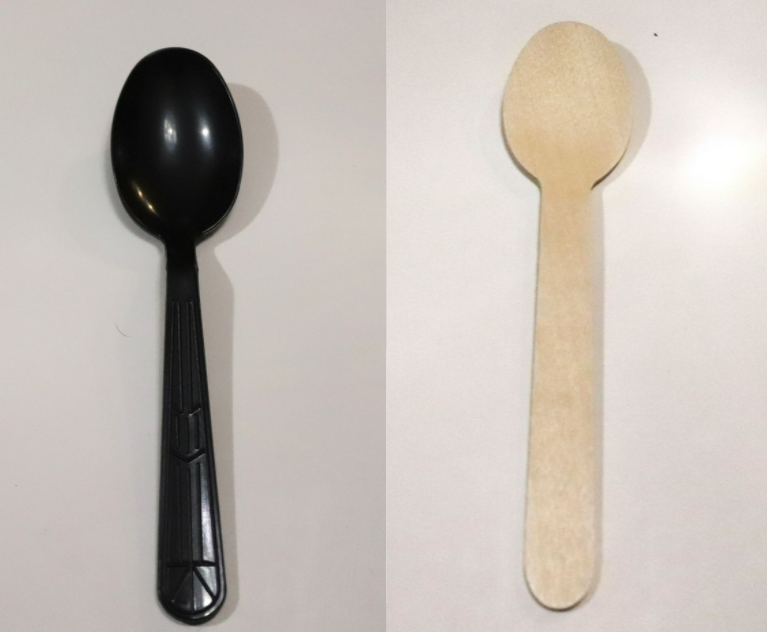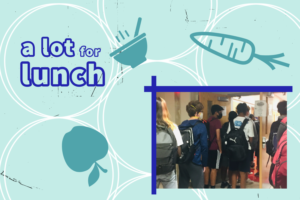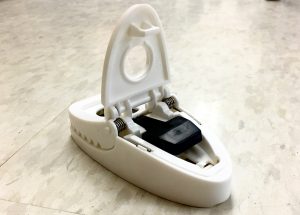Cafeteria staff puts price tag on spoon problems
Plastic spoons at Jefferson are both environmentally and financially costly because the cafeteria staff are making students pay for spoons. “It was shocking, because it’s never really happened before. You get the idea that utensils would be free, since the lunches are free, so this doesn’t really make sense,” freshman Zamzama Ahmadi said.
February 10, 2022
The cafeteria staff put a price tag on spoons approximately one month after school started. This 10-cent fee per spoon was originally added because of reckless student behavior.
“At the beginning of the school year, kids would grab 5-10 spoons at a time,” Food Nutrition Services manager Omar Mendez said.
This restriction doesn’t limit the amount of plastic spoons used, because students get the whole lunch just to get the spoon.
When students take a whole lunch for the spoon it actually ends up wasting more money and more plastic. Four billion plastic utensils are manufactured in America every year. One hundred thousand marine animals and over 1 million seabirds die from ingesting plastic, and utensils are the main cause. Additionally, they are environmentally dangerous, because they take 1,000 years to decompose. At Jefferson, we have plastic utensils, and alternative solutions are possible.
The previous Virginia Governor, Ralph Northam, signed an executive order in March 2021 making it necessary for state agencies to stop buying single-use plastic straws and cutlery by July 21, 2021, in order to phase out single-use plastics by year 2025. Mendez said that there is no plan on how to limit plastic waste at the TJ cafeteria that gives out 250 spoons a day.
Contrary to the 10 cent cost, the Jefferson nutrition department is charging, the spoons cost 5 cents each for Fairfax County to purchase from Riverside Paper. The nutrition department is charging Jefferson students double that amount, when FCPS could be buying spoons for 1 cents at Loeng Max that are made of wood, eco-friendly, and 100% biodegradable. Furthermore, Jefferson can divide expenses by 5 and be able to provide spoons for everyone.
While students may be taking more spoons than expected, it doesn’t mean we should put a price tag on things we can easily solve. Approximately 50 people come to ask for spoons everyday, and if they were each to pay the 10 cent requirement, the cafeteria only gets back about $1.25 after the cost of manufacturing. However, if we use wooden spoons, the nutrition’s department would be saving 10 dollars everyday.
The Biden-Harris Administration is providing up to $1.5 billion to states and school districts to help school meal program operators deal with the challenges of supply chain disruptions brought on by the pandemic. The spoon cost may be a problem across the county, but other high schools in the area don’t make students pay for spoons. While it is understandable to have a lack of resources, the choice made at the time was not the most environmentally friendly choice.
Saving the environment may seem like a big task, but as a Jefferson community we can help by using wooden spoons.









